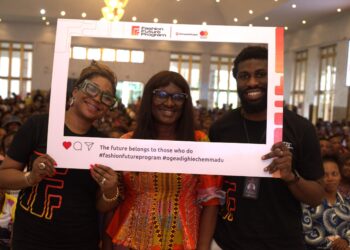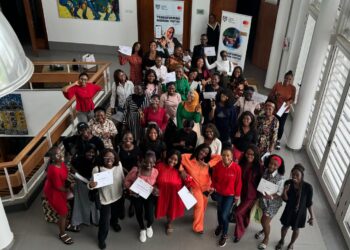Prolonged school closures brought on by the COVID-19 pandemic have left millions of children in Nigeria without any formal school learning over the last six months. Cut off from any instruction, feedback, or interaction with their teachers, learners are now at risk of losing important learning gains and will need to catch up on what they missed.
Data Science Nigeria and Malezi have joined hands with the Mastercard Foundation to provide opportunities for continued learning while schools are closed and build long-term resilience in the Nigerian education system to withstand potential future disruptions to the school calendar.
The initiative, entitled ‘Learn at Home’, will enable remote learning through multiple channels; namely, radio, mobile and web, and aims to provide learning access for 1 Million children in Nigeria within the next 12 months. This initiative is made possible by the Mastercard Foundation COVID-19 Recovery and Resilience Program.
“This pandemic continues to upend basic assumptions about where, when, and how we learn and work. Right now, the priority, in terms of education, is ensuring that children learn—no matter where they are or whether they have access to the internet. Ensuring universal learning continuity is critical if we are going to mitigate not just losses in learning, but the overall inequality being perpetuated by this crisis,” said Chidinma Lawanson, Country Head, Nigeria at the Mastercard Foundation.
The project delivery is split into two major channels. Offline and online learning. Data Science Nigeria will take charge of delivering the offline learning and has created a localized and relevant learning syllabus that can easily be accessed on radio stations close to the children and on any mobile phone by simply dialling a USSD code, a data connection is not required.
Speaking on the five key differentiators of this project, Toyin Adekanmbi, Executive Director of Data Science Nigeria said; “Our approach to tackling education for disadvantaged kids rests on our understanding of the obstacles and we have worked to overcome them head on. Learn from Home requires no internet connection to access, the curriculum is localized per locations across Nigeria and based on the NERDC curriculum, the highest quality standard of teachers have been engaged for content delivery and each student will have a unique school registration number that allows student-teacher engagement and regular opportunity to test learning using simple mobile telephony services like USSD and SMS”.
Malezi, which is experienced in large-scale education across several countries in Africa will be in charge of delivering the online learning. Malezi will provide a rich learning experience to children who have access to internet connectivity and smart devices. This category will cover self-paced learning with numerous curriculum-aligned e-notes, videos and quizzes as well as teacher support through live tutorials and question and answer options. Learning content will be accessed through both mobile and web platforms. Malezi also plans to offer downloadable learning material for those students who experience intermittent data connectivity.
The ‘Learn at Home’ project commenced just in time for the back-to-school season and will prove critical learning for children across the country whether they have access to the internet or are offline. Due to the COVID-19 restrictions, a return to in-person school delivery is yet to be determined by many state governments, making this intervention by Data Science Nigeria, Malezi and the Mastercard Foundation especially timely.
Speaking on the project, Mrs Alade, a parent of two children who are potential beneficiaries of the program said; “This is a well needed help for us parents. We need our children who have not been in school for a long time to catch up on all they have missed. Thank you for this”.




























